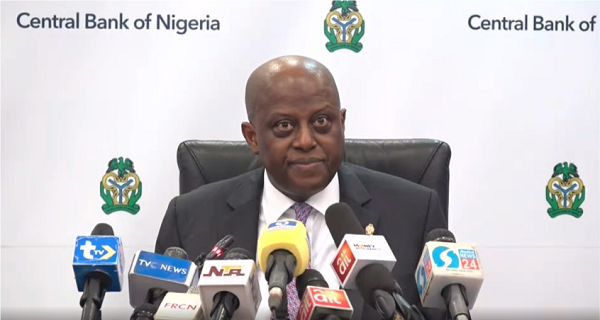Nigeria’s external reserves have increased to $46.7 billion as of November 14, 2025, providing 10.3 months of import cover for goods and services.
The Central Bank of Nigeria (CBN) attributed the growth to steady foreign inflows and renewed investor participation across multiple asset classes.
CBN Governor, Mr. Olayemi Cardoso, represented by Deputy Governor for Economic Policy, Mr. Muhammad Sani Abdullahi, disclosed the figures at a colloquium marking the 20th anniversary of the Bank’s Monetary Policy Department (MPD).
According to Cardoso, the rising reserves “reflect investor confidence in our policies, leading to improved oil receipts, stronger balance of payments, and renewed foreign portfolio inflows.”
The governor linked the growth to recent sovereign outlook upgrades by leading international ratings agencies, including S&P Global Ratings, which revised Nigeria’s outlook from stable to positive. He noted that Nigeria’s removal from the Financial Action Task Force (FATF) Grey List also boosted international confidence.
Cardoso explained that the combined developments have strengthened the naira, improved trade balances, and provided a stronger base for inclusive economic growth.
He further emphasized the CBN’s transition to a full inflation-targeting framework, calling it a “strategic imperative for sustaining price stability, boosting credibility, and enhancing monetary policy transmission across the economy.”
Director of the Monetary Policy Department, Dr. Victor Oboh, highlighted the department’s evolution over 20 years, supporting the MPC with research, analysis, and international policy coordination. Oboh noted that the MPD played a key role during past crises, including the global financial crisis, commodity price shocks, and the COVID-19 pandemic.
Reflecting on the MPD anniversary theme, “Monetary Policy in Nigeria: Past, Present and Future,” Oboh stressed that the department’s work has strengthened transparency, credibility, and public confidence in Nigeria’s monetary policy framework.
He added that future challenges, including global financial fragmentation, digital currencies, and climate-related financial risks, will require continued innovation, agility, and forward-looking policy coordination by the MPD.



